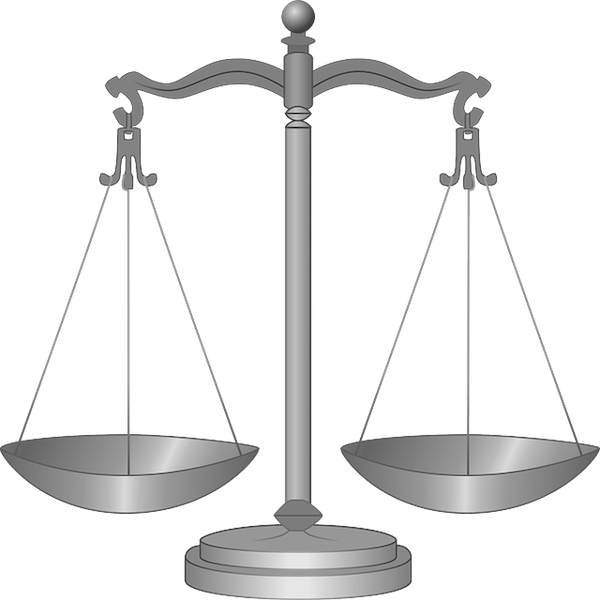You only need a glimpse to know what they are: the barest outline of the Eiffel Tower or a few flying buttresses of Notre Dame are usually enough to identify the most famous Paris attractions. Located in one of the best known and most visited cities in the world, Paris’ top sites are, in fact, so popular and so heavily visited that touring the city can sometimes feel like pushing through a sea of tourists as you each struggle to complete the same sightseeing checklist.
Trying to choose the right credit card can get overwhelming fast. There are tons of options, and every company claims to offer the best one. How can you sort through the jargon and find the best card for your personal finances?
I believe that to choose the right card, you need to understand yourself as a consumer. How can you get started down the road of financial self-discovery? First, take my personal finance quiz below.
If you’ve ever analyzed your personal finances, you may have come across the term “net worth.” Simply put, your net worth is what you have minus what you owe.
While net worth is a useful way to evaluate your financial situation, it also has some major flaws. Let’s define the concept of net worth, and then look at some key adjustments you can make to assess your finances and plan for the future even better.
Is College Really Worth It? Expert Cost-Benefit Analysis
With tuition rising every year, more and more students are asking themselves, "Is college worth it?" Many people believe that getting a college education is an important part of becoming a successful adult. Others, however, find it difficult to justify the increasing investment necessary to earn a degree. There’s no one path that’s right for everyone, and it can be difficult to think critically about the decision to go to college when you’re feeling pressured one way or another.
There’s no simple answer to this question, but there is a rational way to think about whether college is the right path for you. Just as with any investment, you want to think about the relationship between what you put into it (like money, time, and effort) and what you get out of it (like education, networking, and career opportunities). The more you get out of it as compared to how much you put in, the better the investment.
In this post, I'll go through all the potential benefits and drawbacks of pursuing a four-year bachelor's degree so you have all the information to decide for yourself whether college is worth it.
Average ACT Score for Colleges: What You Need to Get In
If you're preparing for the ACT or you've taken the ACT, you probably want to know what score you need to get into college. What's an average ACT score for colleges? Do you need to do better than average to go to college?
In this article, I'll explain average ACT scores and what they mean for you. Find out how to calculate the score you need to give yourself the best chance to get into your dream school.
If you want to save in a smart way for college (either for yourself or your child), you’ll want to make the most of your money. One of the best savings plans meant specifically for growing a college fund is called a 529 plan, or a qualified tuition plan.
But what is a 529 plan? Like any sort of investment plan, there are several types of 529s, all with their own benefits and drawbacks. In this post, I’ll talk about the basics of 529 plans, why they’re helpful, whether they affect financial aid, and where you can get one.
Makers of the new SAT have decided that the Reading and Writing sections go together like peanut butter and jelly. Instead of treating them separately, College Board now combines Reading and Writing together in the same section.
This guide will go over the Reading and Writing section of the SAT and how this new format affects your test prep. To begin, let’s define this new section on the SAT.
If you're an adult who needs or wants to take the ACT, you might be worried. Most people taking the test are 16 or 17, but can you take the ACT after high school? Yes, you absolutely can! There are many valid reasons for taking the ACT after high school, and the process barely differs from taking it as a teenager.
In this article, I’ll discuss the reasons you may want or need to take the test as an adult, how to register, how testing as an adult will be different, as well as additional advice.
Do you just want to be done with the application process and know where you're going to college? Do you have your heart set on one college, and you want to give yourself the best chance at getting in?
If you answered yes to these questions, early decision may be a good option for you. In this article, I'll explain what it means to apply for early decision and explain everything you need to consider to answer the often stressful question, "should I apply early decision?"
What's a Liberal Arts College? Should You Attend One?
If you’ve started researching colleges, you’ve probably seen the term “liberal arts school” thrown around quite a bit without really understanding what it means. What is a liberal arts college, actually? And how is it different from other sorts of colleges and universities?
It’s hard to get a straight answer when it comes to defining a liberal arts college. In this post, I’ll dive a little deeper into defining the liberal arts before explaining what it means to get a liberal arts education. Then, I’ll talk about how these colleges differ from non-liberal arts schools and how that may affect your educational experience.
Where to Find Free SSAT Practice Tests: Complete Collection
If you (or your child) are applying to a private or independent elementary, middle, or high school, you may have heard of the SSAT. Often used as an entrance exam, the SSAT is a series of standardized tests that can be administered to students in grades 3-11.
The SSAT, or Secondary School Admissions Test, is a standardized exam often given to students hoping to enter a private or independent elementary, middle, or high school. If you want to boost your chances of getting into one of these schools, working on SSAT practice tests is a great way to do it. Here, I’ll discuss where you can find these practice tests (both official and unofficial), and how you should use them. I’ll wrap up with important SSAT test-taking tips.
There's so much info out there about doing well on the ACT - a lot of it is really helpful when it comes to preparing for the test! But this onslaught of information can get pretty overwhelming, especially when you just want a simple answer to a simple question: how do you pass the ACT?
Confused By Your New SAT Score? 2 Controversies, Explained
With the launch of the redesigned SAT in March of 2016, a new era was born in standardized testing. While the College Board was hopeful that there would be no issues with the new test or its familiar scoring system (maximum score of 800 per section), unfortunately there have been scoring issues that are confusing and upsetting students. Furthermore, the College Board has managed to irk its arch nemesis, the ACT.
In this article, I’ll break down these controversies and explain what they mean for you.
The SAT is one of the most important tests you’ll take in high school. When you take a test in class, there are clear guidelines for passing and failing - wouldn’t it be nice to have the same thing for the SAT?
Here, I’ll talk about exactly what it means to pass the test (spoiler: it’s different for everybody) before giving you tips and strategies fo how to pass the SAT and get the score you need.
Expert Guide to the ACT Format: What You Need to Know
If you want to do well on the ACT, it's not enough to just study test content. You have to know the test inside and out, including what questions to expect, what reading passages to anticipate, and what topic areas you'll encounter the most.
Being this familiar with the test will help you improve your score in a significant way—it's much more effective than just focusing on test content. In this post, I'll go over everything you need to know about how the ACT is written, including format, content, and question types. At the end, I'll tell you exactly what you can do to successfully incorporate this knowledge into your ACT study plan.
























